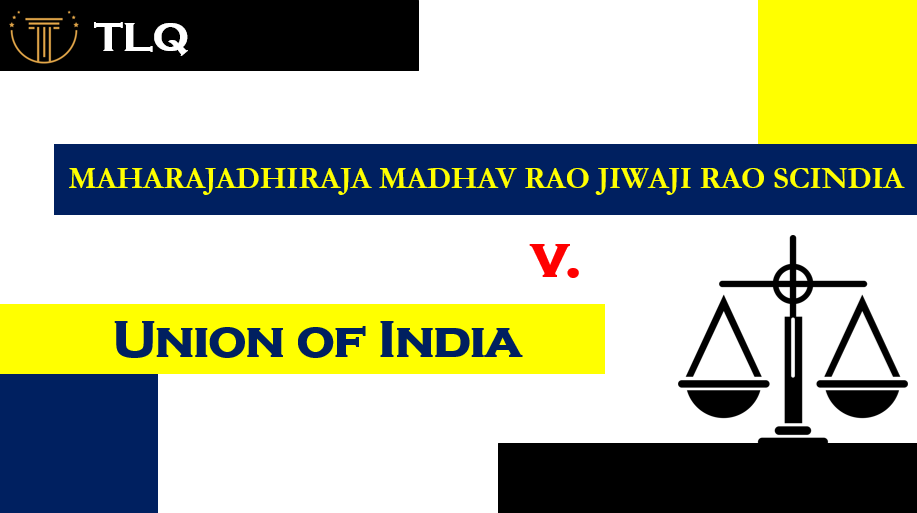Published on 19th April 2025
Authored By: Bhoomi Siddharth Aru
MMSCLC
Case citation: Budhadev Karmaskar v. State of West Bengal, (2011) 11 SCC 538.
Introduction
The case of Budhadev Karmaskar v. State of West Bengal is a landmark judgment in Indian jurisprudence that not only addresses the criminal culpability of the accused but also delves into the broader societal issues concerning the rights and rehabilitation of sex workers. Originating from a brutal murder in 1999, the case evolved to highlight the constitutional mandate of dignity and equality for all individuals, irrespective of their profession.
Facts of the Case
On the night of September 17, 1999, at approximately 9:15 PM, Shrimati Chhaya Rani Pal, also known as Buri, a 45-year-old sex worker, was viciously attacked in her residence located in the red-light district of Jogen Dutta Lane, Kolkata. The assailant, identified as Budhadev Karmaskar, engaged in a heated altercation with the victim, during which he physically assaulted her using his fists and feet, leading to severe injuries. The assault culminated in Karmaskar dragging Pal by her hair and forcefully striking her head against a wall. Despite being rushed to a nearby hospital, Pal was declared dead upon arrival. Karmaskar was apprehended by the police within hours of the incident. [i]
Legal Proceedings
- Trial Court
The trial court, upon evaluating the evidence and testimonies, found Karmaskar guilty of murder under Section 302 of the Indian Penal Code (IPC). The conviction was primarily based on eyewitness accounts and medical reports detailing the cause of death. Consequently, Karmaskar was sentenced to life imprisonment.
- High Court
Dissatisfied with the trial court’s verdict, Karmaskar appealed to the Calcutta High Court. The defense argued the inadmissibility of certain eyewitness testimonies, particularly highlighting that one key witness did not appear for cross-examination, thereby questioning the credibility of the prosecution’s case. However, the High Court dismissed the appeal, upholding the trial court’s judgment. [ii]
- Supreme Court
The matter was subsequently escalated to the Supreme Court of India. In its 2011 judgment, the Supreme Court not only reaffirmed the conviction and sentence of the accused but also took suo motu cognizance of the deplorable conditions faced by sex workers in the country. The Court emphasized that sex workers are entitled to a life of dignity under Article 21 of the Indian Constitution. Recognizing the systemic discrimination and violence faced by this marginalized community, the Court converted the criminal appeal into a Public Interest Litigation (PIL) to address the broader issues concerning the rights and rehabilitation of sex workers. [iii]
Key Legal Issues
- Admissibility of Eyewitness Testimony
The defense contended that the testimony of an eyewitness, who did not present herself for cross-examination, should be deemed inadmissible. This raised pertinent questions about the standards of evidence and the rights of the accused to a fair trial.
- Rights and Dignity of Sex Workers
The case brought to the forefront the constitutional rights of sex workers, particularly their right to live with dignity, free from violence and discrimination. The Supreme Court’s intervention highlighted the need for systemic reforms to protect and rehabilitate individuals engaged in sex work.
Judgment and Directives
In its landmark judgment, the Supreme Court issued several directives:
Constitution of a Panel: The Court mandated the formation of a panel comprising senior advocates and NGO representatives to examine the conditions of sex workers and suggest measures for their rehabilitation.
State and Central Government Involvement: Both state and central governments were directed to collaborate in formulating schemes aimed at providing alternative livelihood opportunities for sex workers, ensuring their integration into mainstream society.
Protection of Rights: Emphasis was placed on safeguarding the fundamental rights of sex workers, ensuring they are not subjected to harassment or exploitation by law enforcement agencies or society at large.
Impact of the Case
The ramifications of the Budhadev Karmaskar case are multifaceted:
- Judicial Recognition of Marginalized Communities
The Supreme Court’s proactive stance underscored the judiciary’s role in championing the rights of marginalized groups, setting a precedent for future interventions aimed at social justice.
- Policy Reforms
The directives led to the initiation of policy discussions at both state and central levels, focusing on the rehabilitation of sex workers. Various schemes were proposed to provide vocational training, education, and financial assistance to facilitate their transition to alternative livelihoods.
- Societal Awareness
The case ignited public discourse on the plight of sex workers, challenging societal prejudices and advocating for a more empathetic and rights-based approach towards them.
- Legal Precedents
The judgment reinforced the applicability of fundamental rights to all citizens, irrespective of their profession, and highlighted the judiciary’s commitment to upholding these rights against societal biases.
Conclusion
The Budhadev Karmaskar v. State of West Bengal case transcended the confines of a criminal proceeding to address profound societal issues concerning human dignity, equality, and justice. It serves as a testament to the judiciary’s pivotal role in not only interpreting the law but also in steering societal progress towards inclusivity and compassion.
References
- https://www.casemine.com/judgement/in/62ba2607b50db90d4b557549
- https://theamikusqriae.com/case-comment-budhadev-karmaskar-v-state-of-west-bengal-and-ors/
- https://lawfoyer.in/buddhadev-karmaskar-v-state-of-west-bengal/
- https://lawbhoomi.com/budhadev-karmaskar-vs-state-of-west-bengal
- https://www.mylawman.co.in/2022/12/case-brief-budhadev-karmaskar-v-state.html
- https://indiankanoon.org/doc/1302025


